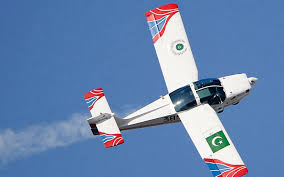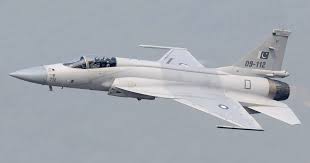Pakistani scientist’s skills boost China’s aerospace sector

Beijing: Muhammad Ibrahim, 28, a Pakistani aerospace technology scientist who works at Benewake, a Chinese company headquartered in Beijing, believes the efforts made by China to achieve a moderately prosperous society have opened doors of opportunity for the rest of the world.
“It’s very well-known that China has set this goal. In working to achieve it, the country has brought peace and stability to human society and promoted technologies,” he said, speaking of the vision, known in Chinese as Xiaokang shehui.

“Xiaokang society has made a major contribution to the development of China. We know that it was established by former Chinese leader Deng Xiaoping, who thought China would one day become a nation where people are moderately well-off, where economic prosperity is capabble of moving most of the population into comfortable means,” said Ibrahim, who is familiar with the modern history of China, according to a report published by China Daily on Tuesday.
As an international student who got his master’s degree and found a job in his field after graduation, Ibrahim said he has benefited from China’s Xiaokang society in science and technology and meanwhile has contributed to the process through what he has learned in China.

As one of the few young scientists specializing in the design of quadcopters with stable balancing systems in Pakistan, Ibrahim came to China with the clear purpose of continuing his research with top scientists in the aerospace field.
Unlike many foreign students who came to China because of their interests in Asian cultures and want to learn the Chinese language, Ibrahim searched for professors who have research interest in the control of flying vehicles because he wanted to continue his master’s degree in that area.
“Once I found one of the professors at the Beijing Institute of Technology, I applied for his master’s programme in the aerospace engineering school,” he said. “I wanted to combine electronics and principles of control theory and apply it in aerial robotic systems.”
Wang Jianan, Ibrahim’s tutor and professor at the school, said he selected Ibrahim from a list of five competitive candidates for the programme because of his strong academic background.
“He has performed better than the average Chinese researcher in the field,” Wang said. “I’m glad that he kept up his studies in LiDAR technology after graduation which was his research direction and I hope that he will become the bridge between China and Pakistan in this field in future.”
LiDAR refers to distance measurement by reflections of laser light. Slight time differences in the reflections can be used make 3-D images of the target object.
Ibrahim chose a career that echoed the wish of his tutor that he work in a Chinese startup company. Benewake focuses on LiDAR research and development and on manufacturing and technical engineering support.
He supports Benewake customers from 41 countries and regions by providing technical assistance, including selection of suitable products for their applications, solving LiDAR-related problems and consulting on other technical issues.
“I configure LiDARs. I write and modify programming codes to use LiDARs with different mini and micro controllers,” he said. “I act as a communication medium between overseas customers and the R&D teams in the company.”
Li Yuan, CEO of Benewake, who founded the company in 2015 with the aim of being the best producer of robotic eyes (currently LiDAR), has recognized the contribution of Ibrahim, saying that he has accelerated the localization of the company in overseas markets and helped the team adjust to global competition.
“As a high-tech company, we are highly internationalized in terms of technologies and markets, which requires talent from all over the world,” Li said.
He added that China has been transforming from exporter to importer for high-end talent, as the country becomes stronger economically and in scientific technology in recent years.
“To build China into a more prosperous country with the power of science and technology is what drives companies like ours to absorb overseas talent,” he said.
“We are like explorers who opened up a new maritime navigation era in the 16th century, looking to seek treasure at first but discovering a new land by the end.”





